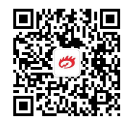热门资讯> 正文
什么类型的股东拥有QAD Inc.的(纳斯达克股票代码:QADA)?
2019-11-05 15:50
如果您想知道谁真正控制着QAD Inc.(纳斯达克股票代码:QADA),那么您就必须查看其股票注册表的构成。内部人士通常拥有大量年轻、规模较小的公司,而大公司往往有机构作为股东。我们还倾向于看到以前公有的公司内部所有权较低。
QAD的市值为9.38亿美元,因此我们预计一些机构投资者已经注意到该股。我们对公司所有权的分析(如下)表明,机构在股票登记处上很明显。让我们深入研究每种类型的所有者,了解有关QADA的更多信息。
查看我们对QAD的最新分析
关于QAD,机构所有权告诉我们什么?
机构投资者通常将自己的回报与常见指数的回报进行比较。因此,他们通常会考虑购买相关基准指数中包含的较大公司。
如您所见,机构投资者拥有QAD 44%的股份。这可以表明该公司在投资界具有一定的信誉。然而,最好不要依赖机构投资者附带的所谓验证。他们有时也会犯错。当多个机构拥有一支股票时,总是存在陷入“拥挤交易”的风险。当此类交易出现问题时,多方可能会竞相快速出售股票。对于没有增长历史的公司来说,这种风险更高。您可以在下面看到QAD的历史盈利和收入,但请记住,故事总是有更多内容。
看来QAD 6.0%的股票由对冲基金控制。值得注意的是,因为对冲基金通常是相当活跃的投资者,他们可能会试图影响管理层。许多人希望看到短期或中期价值创造(以及更高的股价)。有相当数量的分析师在研究该股,因此了解他们对未来的总体看法可能很有用。
QAD的内部所有权
虽然内部人士的确切定义可能是主观的,但几乎每个人都认为董事会成员是内部人士。公司管理层向董事会负责;董事会应代表股东的利益。值得注意的是,有时高层管理人员本身也是董事会成员。
当内部所有权标志着领导层以公司真正的所有者的方式思考时,内部所有权是积极的。然而,高度的内部所有权也可以赋予公司内部的一小群人巨大的权力。在某些情况下,这可能是负面的。
我可以报告说,内部人士确实拥有QAD公司的股票。它的市值仅为9.38亿美元,内部人士以自己的名义拥有价值2400万美元的股票。这至少表明了一些一致。您可以单击此处查看这些内部人士是否一直在买入或卖出。
一般公有制
拥有该公司11%股份的公众不会轻易被忽视。这种所有权规模虽然相当大,但如果决定与其他大股东不同步,可能不足以改变公司政策。
私人公司所有权
私人公司似乎持有QADA 36%的股票。仅从这一事实很难得出任何结论,因此值得调查谁拥有这些私营公司。有时,内部人士或其他关联方通过单独的私人公司在上市公司的股份中拥有权益。
下一步:
我觉得看看谁拥有一家公司是很有趣的。但为了真正获得洞察力,我们还需要考虑其他信息。
很多人觉得它很有用
深入了解一家公司过去的表现。您可以访问此
详细图表
过去的盈利、收入和现金流。
最终
未来最重要
.您可以访问此
免费
分析师对公司的预测报告。
注意:本文中的数字是使用过去12个月的数据计算的,过去12个月是指截至财务报表日期月份最后一天的12个月期间。这可能与全年年度报告数据不一致。
我们的目标是为您提供由基本数据驱动的长期重点研究分析。请注意,我们的分析可能不会考虑最新的价格敏感公司公告或定性材料。
如果您发现需要更正的错误,请联系编辑adeditori-team@simplywallst.com。这篇文章由简单的华尔街是一般性的。它不构成买卖任何股票的建议,也不考虑您的目标或您的财务状况。简单地说,华尔街在上述股票中没有头寸。感谢您的阅读。
推荐文章
港股周报 | 中国大模型“春节档”打响!智谱周涨超138%;巨亏超230亿!美团周内重挫超10%
一周财经日历 | 港美股迎“春节+总统日”双假期!万亿零售巨头沃尔玛将发财报
一周IPO | 赚钱效应持续火热!年内24只上市新股“0”破发;“图模融合第一股”海致科技首日飙涨逾242%
从软件到房地产,美国多板块陷入AI恐慌抛售潮
Meta计划为智能眼镜添加人脸识别技术
危机四伏,市场却似乎毫不在意
美股机会日报 | 降息预期升温!美国1月CPI年率创去年5月来新低;净利、指引双超预期!应用材料盘前涨超10%
财报前瞻 | 英伟达Q4财报放榜在即!高盛、瑞银预计将大超预期,两大关键催化将带来意外惊喜?

